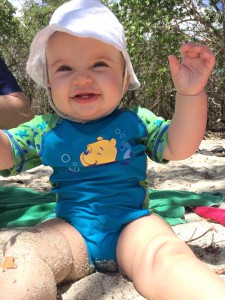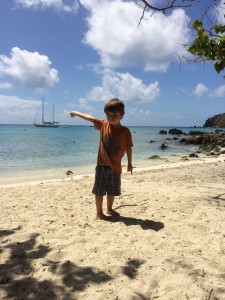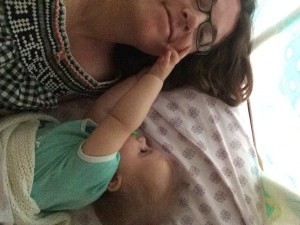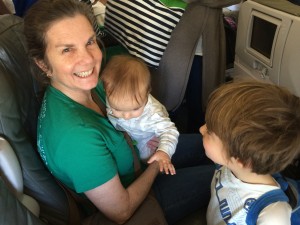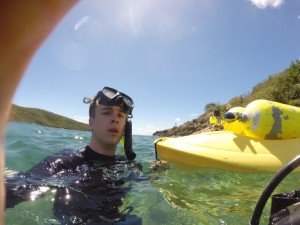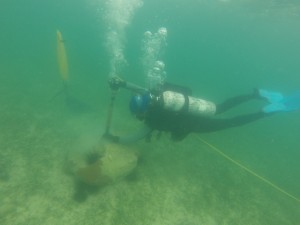I’m finalizing my presentation for next week’s 2016 International Coral Reef Symposium, and this reminded me that we didn’t put together any posts about our fieldwork so far this year! Both Sean McNally and me (Jessica Carilli) completed fieldwork during spring semester – together we collected coral core samples from St. John, USVI, and Sean joined the Baum and Cobb labs from University of Victoria and Georgia Tech to collect coral tissue samples, zooplankton biomass, and other samples and data from Kiritimati, Kiribati.
Our fieldwork in St. John was a bit special for me, as it was the first time I brought my children along on fieldwork. My son is now 4 years old, and my daughter was born last summer, so she was about 7 months old during our field expedition. Neither of my kids really ever took a bottle (despite my intense efforts), so for both of their infancies I’ve been essentially tethered to them in order to continue breastfeeding. This has not been easy. With my son, I decided to just forgo fieldwork for the time period when I was nursing, but I did bring him (and his dad) along to events like the 2012 ICRS, visiting labs in Queensland, etc. With my daughter, I decided that putting off fieldwork until she was done nursing wasn’t going to work – so she came along. We also decided that my son should come, too so he could experience a week outdoors as a break from the Boston winter. This meant the kids needed a full-time caretaker. I am extremely privileged, because I have a mother who is now retired, loves caring for her grandchildren, and can afford to pay her own way places to take care of them. This, combined with the ease of acquiring medical care on St. John (should it be needed), meant that I could bring the little ones along while completing needed fieldwork.
We were lucky to get a spot to stay in a cabin at VIERS with a kitchen. It’s always handy to have cooking capabilities, or at least a fridge, with kids who eat at random times and are weirdly picky – but for fieldwork which also can take place at odd hours this was extra helpful.




